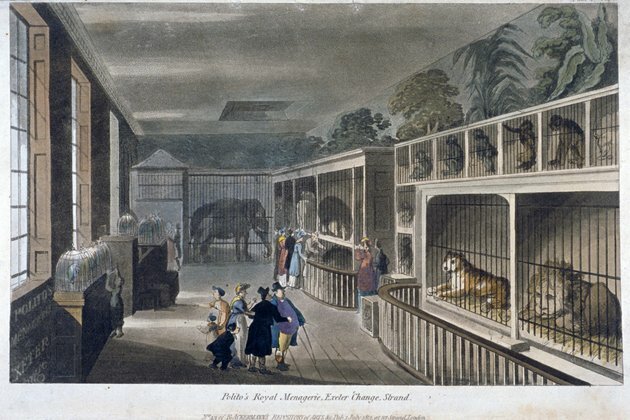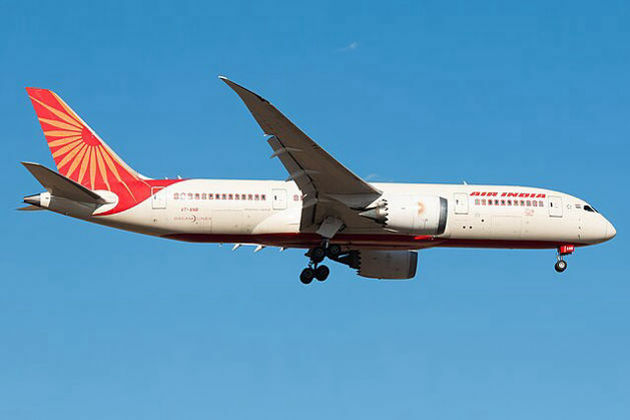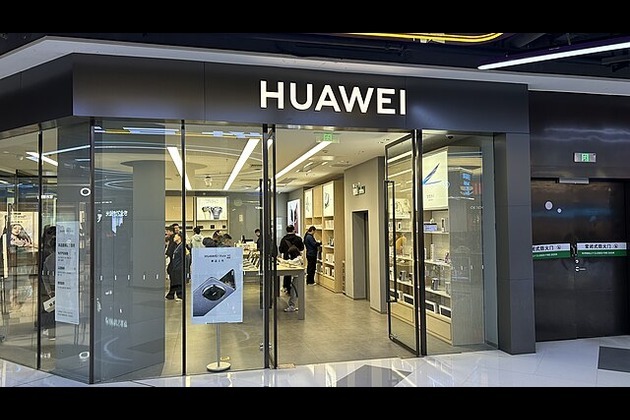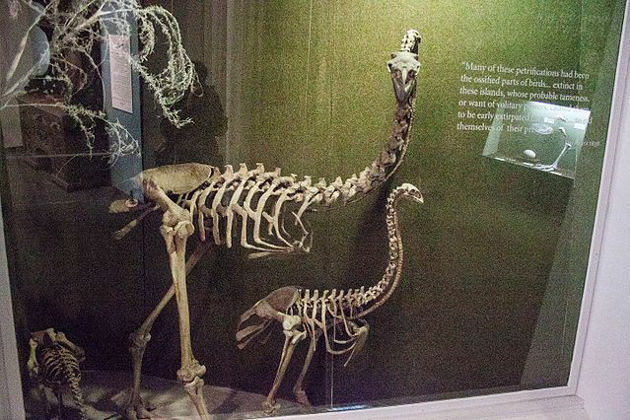Where was the world's first zoo?
The Conversation
23 May 2022, 18:09 GMT+10

Curious Kids is a series for children of all ages. If you have a question you'd like an expert to answer, send it to [email protected].
The truth is historians don't know who built the first zoo, or when it was built. But we can be confident it happened a very long time ago.
Human fascination with animals goes back as far as humans do. In the oldest cave paintings discovered, some of which are up to 40,000 years old, there are more images of animals than people.
At some point, humans began to capture and hold animals so they could look at them up close whenever they wanted.
Zoos for the lucky few to enjoy
The first known collections of exotic animals were held by royalty - and were not open to the public.
Archaeological digs in the ancient Egyptian city of Nekhen have found buildings from around 3500 B.C. containing the remains of captive hippos, baboons and elephants - animals not native to Egypt. But life wasn't easy for these animals. They probably had short lives, and their remains show evidence of severe injuries.
The tomb of the Egyptian pharaoh Sahure, who died around 2500 B.C., includes realistic images of Syrian bears wearing collars and leashes. It's thought they had been brought back from a trading expedition. How long the bears lived is anyone's guess.
Public zoos open to all
The first public exhibit of animals may have been created by Egypt's Queen Hapshepsut around 1480 B.C. Researchers think the zoo was started with animals brought home from an expedition the queen sent to a far-off land known as Punt, which may have been modern-day Eritrea. It's unclear why she built the zoo, but it might have been to show off her wealth and right to rule. Keeping dangerous and exotic animals in captivity has sometimes been a way for rulers to demonstrate how powerful they are.
Early zoos are found all over the world. In China, Emperor Wen-Wang is said to have built a "Garden of Intelligence" around 1060 B.C. It included deer, birds and many fish.
In England, King Henry I set up a menagerie in about 1110 as part of the royal estate at Woodstock, in Oxfordshire. His collection included tigers, camels, lions and porcupines. This collection eventually moved to the Tower of London in 1235, around the time King Henry III was given three lions by Holy Roman Emperor Frederick II. The Tower animal collection stayed at that location for 600 years.
If you visit the Tower today, you can see some of the cages: They are bare stonework with metal bars. It is hard to imagine that animals had good lives there. The king of France sent an elephant in 1255. Even though it had its own special housing, it died after only a couple years. The collection once included a polar bear that was allowed to swim in the Thames River on a long chain. At one time, the cost of admission for public visitors was either a small fee or a stray dog or cat to feed to the lions.
In the Americas, Montezuma II had a zoo in Tenochtitlan, now known as Mexico City, in the late 1500s. It included numerous birds, carnivorous mammals and snakes. This zoo was so large that 300 people were employed to take care of the animals. The emperor personally gave a tour of the zoo to the first visitors from Europe. The Spanish soldiers, led by Hernan Cortes, wrote about how much they admired the zoo even though they went on to destroy it during the conquest of Tenochititlan in 1591.
The oldest continuously operating zoo in the world - still open in the same place - is the Schönbrunn Zoo, which was built in Vienna in 1752. The zoo is famous for being the first to use many design innovations, such as keeping animals in naturalistic settings and putting several species together in one enclosure.
Zoos have come a long way, especially in how they care for animals. In fact, many of today's zoos are also conservation organizations, focused on protecting endangered animals.
Hello, curious kids! Do you have a question you'd like an expert to answer? Ask an adult to send your question to [email protected]. Please tell us your name, age and the city where you live.
And since curiosity has no age limit - adults, let us know what you're wondering, too. We won't be able to answer every question, but we will do our best.
Author: Michael J. Renner - Professor of Biology, Psychology, and Environmental Science & Sustainability, Director Zoo & Conservation Science, Drake University 
 Share
Share
 Tweet
Tweet
 Share
Share
 Flip
Flip
 Email
Email
Watch latest videos
Subscribe and Follow
Get a daily dose of Vancouver Star news through our daily email, its complimentary and keeps you fully up to date with world and business news as well.
News RELEASES
Publish news of your business, community or sports group, personnel appointments, major event and more by submitting a news release to Vancouver Star.
More InformationInternational
SectionAir India crash: Engines shut down seconds after takeoff, killing 260
NEW DELHI, India: A preliminary investigation into the Air India crash on June 12 in Ahmedabad has revealed that a shift in the fuel...
Sources: Meta won’t alter data model, faces fresh EU charges
BRUSSELS, Belgium: Meta is holding firm on its controversial pay-or-consent model, a move that could lead to fresh antitrust charges...
Trump’s tariff push could push US rates above 20%, ICC says
LONDON, U.K.: American consumers and businesses could soon face the highest overall tariff burden in more than a century, according...
U.S. Urged to Investigate After Israeli Settlers Beat Palestinian-American to Death
The family of Sayfollah Saif Musallet, a 20-year-old American citizen who was beaten to death by Israeli settlers in the occupied West...
New Hampshire federal court ruling defies Trump’s citizenship move
CONCORD, New Hampshire: A federal judge in New Hampshire issued a crucial ruling on July 10 against President Donald Trump's executive...
Houthis attack cargo ship in Red Sea, raising maritime safety fears
DUBAI, U.A.E.: A cargo ship flagged under Liberia, known as the Eternity C, sank in the Red Sea following an attack executed by Yemen's...
Business
SectionAI shift prompts 1,300 layoffs at Indeed, Glassdoor owner
AUSTIN/SAN FRANCISCO: Two of the world's leading job search platforms, Indeed and Glassdoor, are set to eliminate around 1,300 positions...
Bitcoin soars to a record on Trump policies, institutional demand
NEW YORK CITY, New York: Bitcoin surged to a new all-time high this week, buoyed by growing institutional interest and a wave of pro-crypto...
Huawei eyes new buyers for AI chips amid U.S. export curbs
SHENZHEN, China: As global chip competition intensifies, Huawei Technologies is exploring new markets in the Middle East and Southeast...
U.S. food prices at risk as Brazil tariff hits key imports
LONDON/NEW YORK CITY: American grocery bills may be headed higher as coffee and orange juice prices face upward pressure from new tariffs...
WK Kellogg sold to Ferrero as food giants chase shelf power
BATTLE CREEK, Michigan: In a major consolidation of iconic food brands, WK Kellogg has agreed to be acquired by the owner of Ferrero...
Filmmaker joins biotech effort to bring back extinct giant bird
WASHINGTON, D.C.: Filmmaker Peter Jackson's lifelong fascination with the extinct giant New Zealand flightless bird called the moa...













